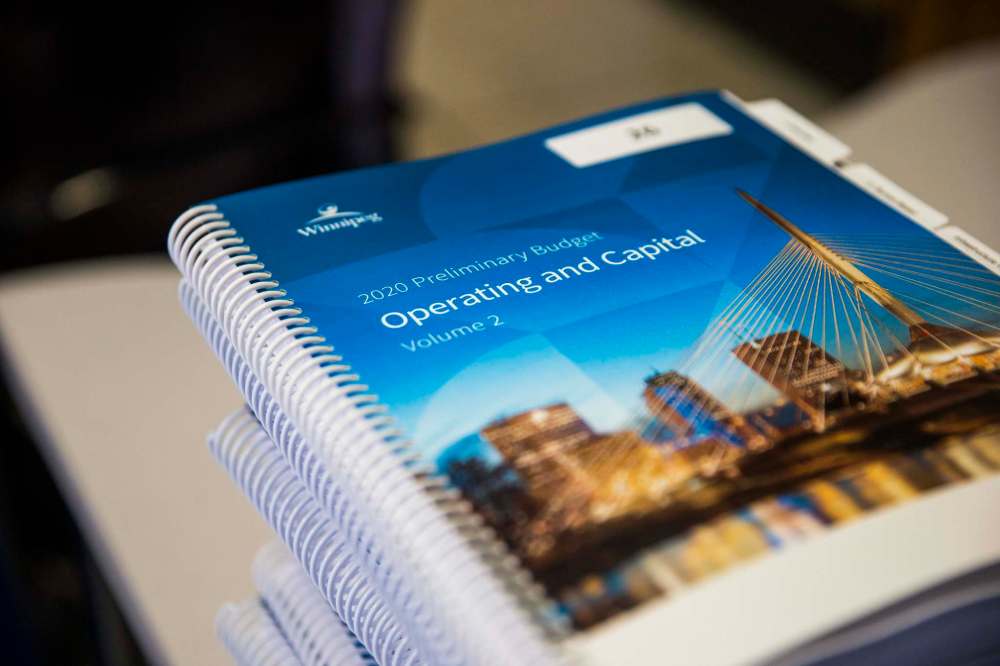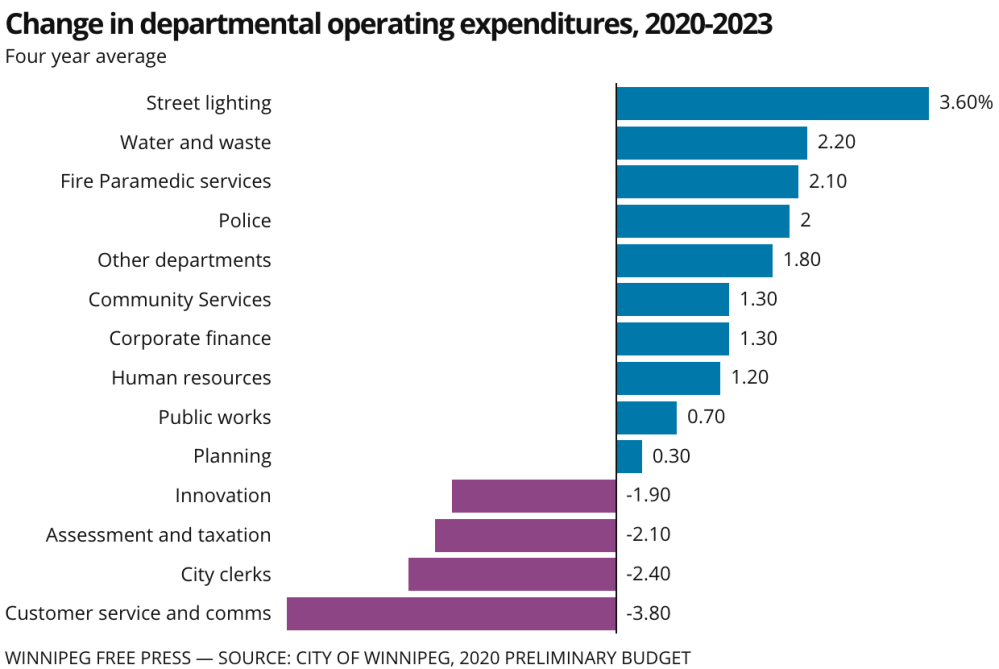City takes well-travelled road to mediocrity in multi-year budget plan
Advertisement
Read this article for free:
or
Already have an account? Log in here »
To continue reading, please subscribe:
Monthly Digital Subscription
$0 for the first 4 weeks*
- Enjoy unlimited reading on winnipegfreepress.com
- Read the E-Edition, our digital replica newspaper
- Access News Break, our award-winning app
- Play interactive puzzles
*No charge for 4 weeks then price increases to the regular rate of $19.00 plus GST every four weeks. Offer available to new and qualified returning subscribers only. Cancel any time.
Monthly Digital Subscription
$4.75/week*
- Enjoy unlimited reading on winnipegfreepress.com
- Read the E-Edition, our digital replica newspaper
- Access News Break, our award-winning app
- Play interactive puzzles
*Billed as $19 plus GST every four weeks. Cancel any time.
To continue reading, please subscribe:
Add Free Press access to your Brandon Sun subscription for only an additional
$1 for the first 4 weeks*
*Your next subscription payment will increase by $1.00 and you will be charged $16.99 plus GST for four weeks. After four weeks, your payment will increase to $23.99 plus GST every four weeks.
Read unlimited articles for free today:
or
Already have an account? Log in here »
Hey there, time traveller!
This article was published 06/03/2020 (2105 days ago), so information in it may no longer be current.
City officials had a golden opportunity when the four-year budget projections were released Friday.
There could have been plans to hive off non-core city services and improve the ones that are critically important to running a municipal government. Instead, the 2020 budget is, largely, a business-as-usual document that continues to embrace mediocrity.
The new four-year projections (the first time the city has provided a multi-year framework for its operating budget) is supposed to give taxpayers an idea of where taxes, fees, other revenues and spending will go over the next four years. The city, by law, still has to pass budgets every year. The four-year projections are just that; estimates that will be amended from year to year as circumstances and economic conditions change.
But what it does do is give the city a path forward to plan, over multiple years, how to maximize resources to improve core services such as road maintenance, transit, parks, police and fire. Unfortunately, instead of using that opportunity to better define the services the city should provide — and which ones should fall by the wayside — the 2020 budget isn’t much different than budgets past.

Property taxes will rise 2.3 per cent. Water and sewer fees will go up around three per cent a year (part of which will be redirected to general revenues). Library hours will be further curtailed, a few wading pools will probably close and police will get a two per cent funding increase, on average, over the next four years.
The only real attempt to take a stab at getting out of areas the city shouldn’t be in is a proposed 50 per cent cut to Leisure Guide programs, which will affect non-children’s programs, for the most part.
Friday’s budget was little more than a nip here, a tuck there, and a few tax increases. Mostly, it was a commitment to the status quo.
The city will continue to run golf courses, provide free rent to 85 not-for-profit groups in city buildings (which do not provide city services and cost taxpayers more than $12 million a year) and provide grants to arts groups and social service agencies. Instead of focusing on core services, city hall continues to try to be all things to all people.
The city hands out $69 million worth of grants to a wide range of groups and organizations, some of which provide city services, many of which don’t. Instead of deciding which ones to drop altogether, the budget proposes to cut the grant amount for most by 10 per cent.
To pay for all this (in addition to rising taxes and fees) the city will borrow more. Budget 2020 will use less cash to pay for capital such as roads and sidewalks, and increase debt instead. The city continues to move closer to its self-imposed debt limits. That means future generations will get stuck with the bill for more of today’s spending. The can gets kicked down the road a little further.
Over the next four years, there are no plans to audit departmental operations to find efficiencies and eliminate duplication and waste. We’re just supposed to believe that under the status quo, city operations are lean and efficient and that there are no opportunities to get better value for taxpayers’ dollars. The city says it’s finding efficiencies in the budget, a claim it makes almost every year. But without a deep dive into each department to scrutinize how every dollar is spent, those claims are little more than hollow platitudes.
The result is more mediocrity: a transit system that continues to produce worse outcomes every year, neglected infrastructure, parks that aren’t properly maintained and a deteriorating stock of city-owned buildings.
There has been a lot of talk at city hall in recent years about ending mission creep and strengthening core services. But when push comes to shove, the political will hasn’t been there to take that step in a meaningful way.
Friday’s budget wasn’t much different than budgets we’ve seen in past years: stay the course and don’t upset the applecart. The path of least resistance was once again the chosen route.
tom.brodbeck@freepress.mb.ca

Tom has been covering Manitoba politics since the early 1990s and joined the Winnipeg Free Press news team in 2019.
Our newsroom depends on a growing audience of readers to power our journalism. If you are not a paid reader, please consider becoming a subscriber.
Our newsroom depends on its audience of readers to power our journalism. Thank you for your support.
History
Updated on Friday, March 6, 2020 7:33 PM CST: corrects typo



